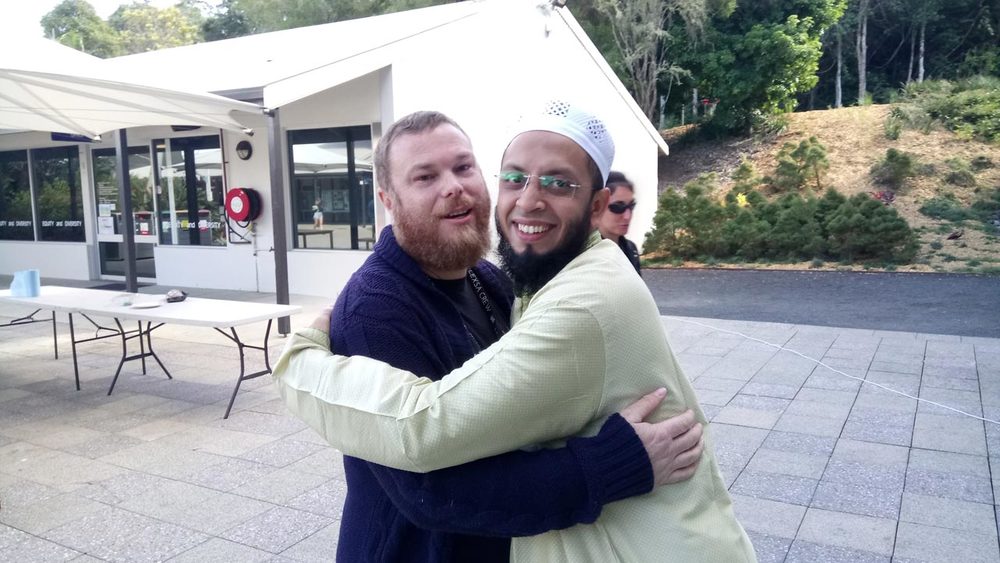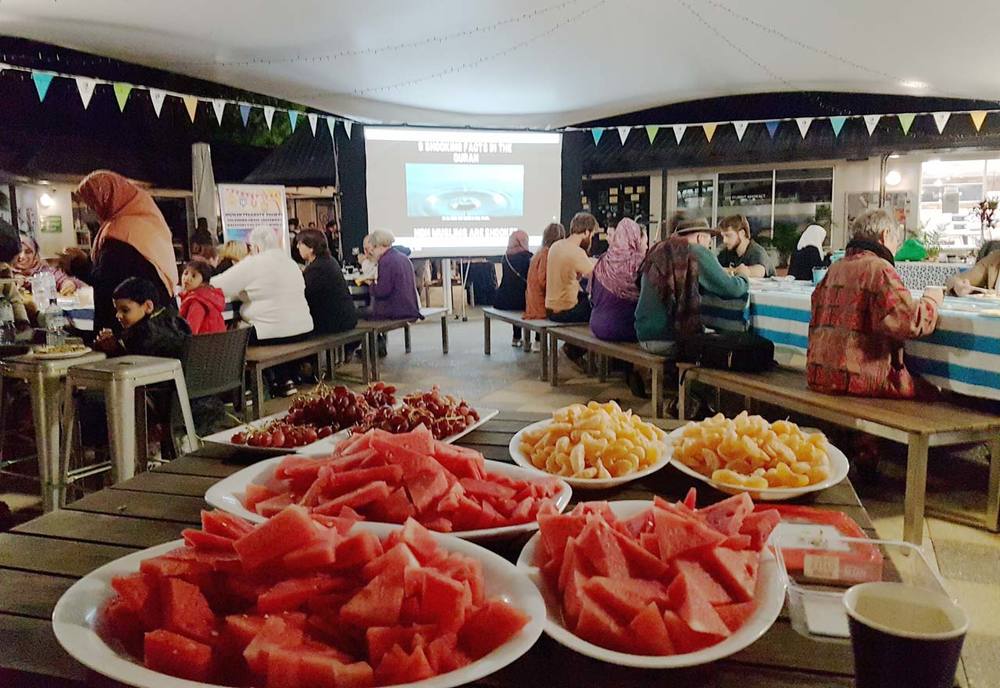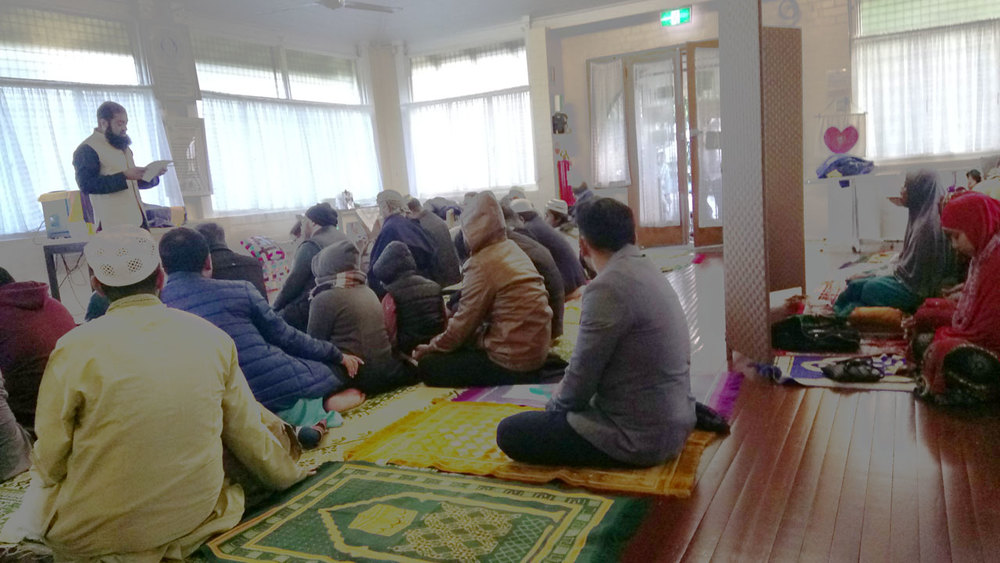Ramadan fasting begins for local Muslim community
Liina Flynn
21 April 2021, 7:00 AM
 Prayer during Ramadan.
Prayer during Ramadan.For the 40 Muslim families in Lismore, last week was the beginning of one of the most important periods in the Muslim religious calendar – Ramadan.
For 30 days, Muslim people will fast between sunrise and sunset – eating no food and drinking no liquids.
Mahmudur Rahman is a casual academic at Southern Cross University (SCU) and member of the SCU Muslim community.
Each day of Ramadan, he and his family wake up early at 3.45am and eat a meal, followed by prayer. Then he might go back and have a nap before he goes to work.
“During the day and night, we also try to increase our prayer and help those less fortunate than ourselves,” he said.
“We try to ask our friends and family members about their well being and how they are doing.
Why fast?
“We fast because the Quran guidance was revealed to Muslims in this month and we commemorate it,” Mahmadur said
“We also want to attain closeness to god and we work at abstaining from all vices, such as anger.
“We also understand the pain and feelings of hungry people and we are encouraged to share food and do more charity.
“We are encouraged to practice this throughout the year, but in Ramadan, we make an extra effort.
“As we feel hungry, we get closer to god an get more reward from God.
“Fasting also increases our strength of will. We build moral, mental and physical strength.”

Muslim population
While Lismore has a relatively small Muslim population, the largest Muslim population in a country is in Indonesia. It's home to 12.7% of the world's Muslims, followed by Pakistan (11.0%), and India (10.9%). About 20% of Muslims live in the Arab world.
What food do Muslims break fast with?
After not eating for while, food takes on a special significance. There are special dishes cooked during the time of Ramadan, especially to break fast with each day.
And despite what you might think, people don’t tend to eat lots to make up for a day of not eating.
“I’m from Bangladesh and we have a light meal when we eat at the end of the day,” Mahmudur said. “If we have too much it causes too much discomfort."
The food Bangladeshi Muslims eat each day of Ramadan is different to what other Muslims from other cultures and countries might eat.
“Bangladeshi Muslims eat different meals to Indonesians – and Arabs do it in their way,” Mahmudur said.
“In the morning, we eat our first meal, caller suhar - and in the evening we eat a meal called iftar. It’s often plain bread and sometimes rice, meat or curries.”

Work and fast
While the 30 days of fasting in happening, most Muslims are still going about their normal work duties.
Mahmadur said because Muslims are introduced to fasting from a young age – and they know they will be fasting, their understanding of their body’s physiology means it doesn’t hamper their daily activities.
“We also drink a bit more water at suhar, so our body can retain water through the day,” he said.
Fasting benefits
“From a scientific perspective, fasting is good,” Mahmudur said. “Scientists have found fasting beneficial for the body - our cells accumulate waste products and if we fast, they get removed from cells.
“It makes our bodies stronger and cleaner.”
Exemptions
Not everyone has to fast during Ramadan – exempt from fasting are elderly people, children, lactating or pregnant mothers or people who are sick.

Call to prayer
If you have ever been to a Muslim country, you will be familiar with the call to prayer that sounds out from every mosque five times a day.
During Ramadan, the mosques also call out prayer pre dawn to awaken Muslims to eat, and often for longer periods of prayer at night too.
Mahmadur said his family members often pray together while at home and the members of the Muslim community offer their prayer at the Chapel during day time at the university. There there is a weekly communal prayer session for locals in town.
Ramadan end
The end of the 30 days of fasting during Ramadan ends with a celebration called Eid Al-fitr
It’s like all the traditional holidays of Christmas and New Year all rolled into one. But unlike the capitalist system - there’s no Santa and it’s not about buying lots of expensive presents.
“At Eid, we practice charity we give food and money to poor people,” Mahmadur said.
“At the end of Ramadan, we have communal prayer and all the children come together to celebrate, share food and visit family members, neighbours and friends.
"We also ask forgiveness from the people if we think we have hurt them – it is something done by most of the Muslim cultures.”
Sharing food
Until Covid put a stop to it last year, the Lismore Muslim community invited the wider community for a meal in the SCU plaza at the end of Ramadan.
“That’s when we all bring our best dishes,” Mahmudur said.
“But unfortunately, we won’t be doing it this year.”
Read more about Ramadan in Mahmadur’s blog: Mahmudur Rahman: The holy month of Ramadan and fasting
JOBS


